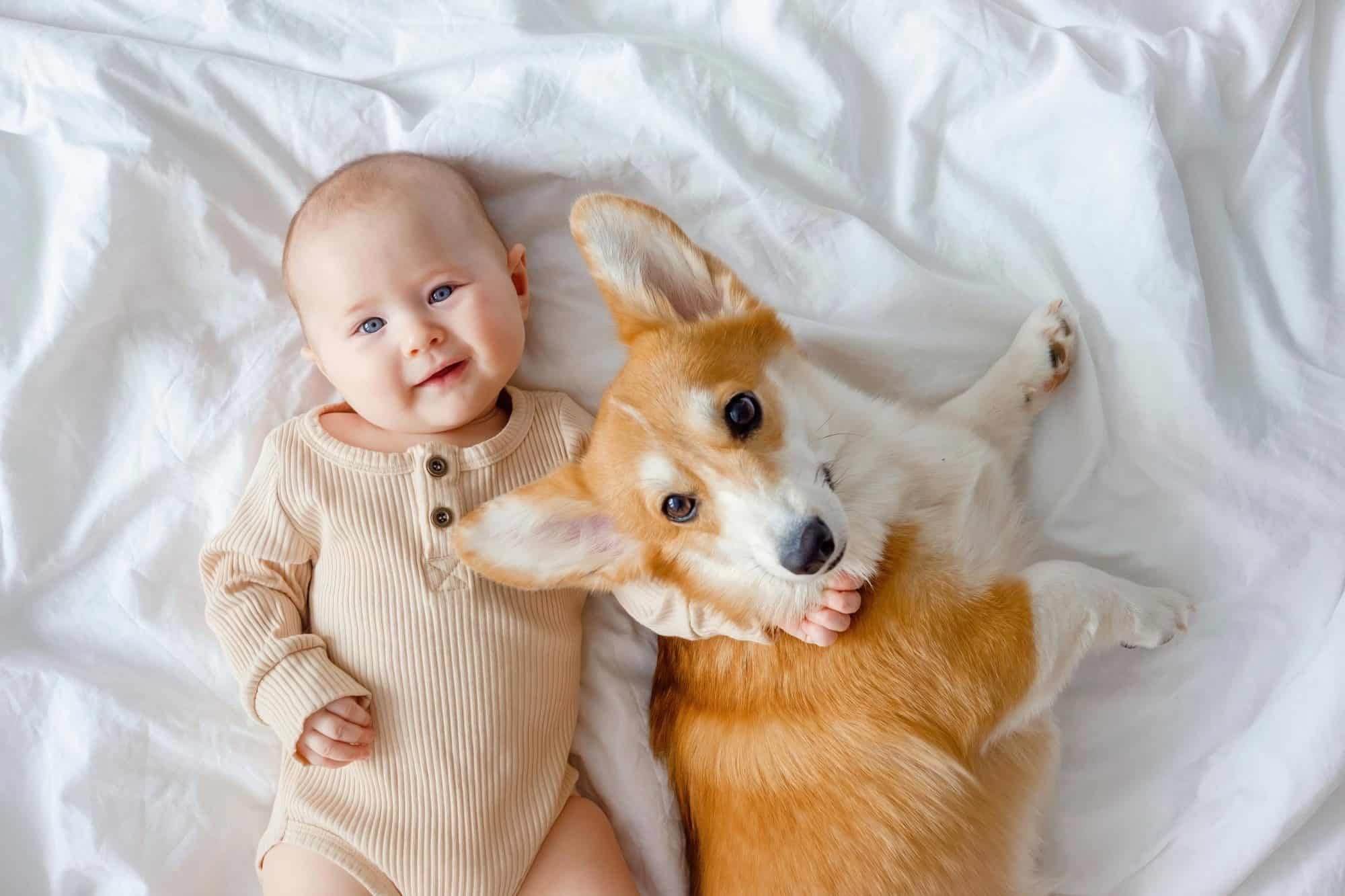How To Introduce Your Pets to a New Baby

Bringing a new baby home is an exciting time, but it can also be stressful for your furry family members. With some preparation and patience, you can help your pets adjust to the latest addition and make sure everyone feels safe, loved, and part of the family.
At Crossroads Animal Hospital, we understand the importance of creating a harmonious environment for both your two-legged and four-legged family members.
Preparing Your Home
Before introducing your pets to the baby, create a comfortable and secure space for them. This will be their safe haven during the initial adjustment period.
- Set up a cozy area with their familiar bedding, toys, and water/food bowls.
- Gradually expose your pets to the baby’s sounds and smells by playing recordings or bringing home a blanket with the baby’s scent.
- Consider using pheromone diffusers or sprays to help calm anxious pets during this transition.
Crate Training Basics
Crate training can be invaluable for managing your pet’s behavior and creating a safe space during the introduction process with a new baby. Here are some quick crate training tips:
- Introduce the crate gradually by leaving the door open with treats and toys inside to build a positive association.
- Use the crate as a haven, not for punishment. Dogs are den animals and will seek out their crate as a comfortable space.
- Start slowly by crating your pet briefly while you’re home, then gradually increase the duration.
- Make sure to provide plenty of exercise and playtime before extended crate periods.
- Consider games to make crate training more enjoyable, such as hiding treats for your pet to find.
When used correctly, crate training provides dogs with a secure, comfortable spot of their own. This can be extremely helpful when adjusting to life with a new baby, allowing your pup a retreat from the commotion. Consistent, positive crate training will set everyone up for success.
Introducing the New Baby to Your Dog
When the baby arrives home, proceed with caution and supervision. Choose a quiet time when your pets are calm, and introduce them to the baby one at a time.
- Hold the baby securely while allowing your pet to sniff and investigate.
- Offer treats and praise for calm, appropriate behavior.
- If your pet seems anxious or overly excited, remove them from the situation and try again later.
- Never force an interaction; let your pets approach the baby at their own pace.
Building Positive Associations
Consistency and positive reinforcement are key to helping your pets associate the baby with good things.
- Be consistent with crate training to maintain structure.
- Provide plenty of exercise, playtime, and attention to alleviate stress and prevent jealousy.
- Consider enrolling in dog training classes to reinforce obedience commands around the baby.
Establishing Boundaries
While it’s essential to keep your pets away from the baby when unsupervised, you don’t want them to feel excluded or punished.
- Designate an off-limits area for the baby that your pets can’t access.
- Use baby gates or pet barriers to control access to certain rooms or areas.
- Never leave your pets and baby unsupervised, even for a moment.
- Teach your children how to appropriately interact with pets from a young age.
Maintaining a Fear Free Environment
The Crossroads Animal Hospital team prioritizes the emotional well-being of all our patients, which is why we practice Fear Free® techniques to help reduce anxiety and promote positive experiences for pets during veterinary visits and beyond.
Welcoming a new baby into your home is a joyful occasion, and with proper preparation, you can ensure a smooth transition for your pets as well. By following these tips, you can help foster a harmonious relationship between your pets and your new baby. Get in touch if you have questions about navigating this happy transition, or call us to schedule an appointment.
